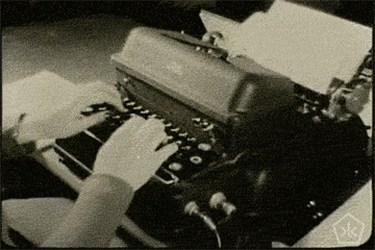5 Creative Ways to Work on Character Development
Written by Ashleigh Gardner
July 6, 2016
Who says character development has to be dry and boring? Nobody! Character development is essential for every role you play, so why not make the process of finding your character fun? Below is a short list of 5 ways to creatively dig deep into who your character is.
1. Start a character journal.

If you like to write, you might enjoy the thought of getting inside your character’s brain to hash out emotions, relationships, and reactions to things that happen in your character’s life during the course of the script. Character journals are a great way to set down any worries, fears, passions, or inner struggles your character encounters on and offstage. What’s more, you don’t have to limit your journalling to prose. If your character is poetic, compose some sonnets, haikus, couplets, or free verse poetry.
2. Make a music mix.

Making mixes isn’t just for collecting your favorite belting solos. Use Spotify or iTunes to create a mix that is distinct to your character. It could be a set of songs that tells the story of your character or a set of songs that your character would listen to. Either option allows you to listen to your mix while doing other things: or driving to rehearsal, writing in your character journal, doing your makeup before the show.
3. Create a photo collage.

Have any old magazines lying around? Instead of throwing them away, cut out pictures, words, and phrases to artistically assemble a character collage: a visual representation of your character’s personality, possible common phrases, and beliefs. You can also use found items like scrapbooking paper and other random paper items. Though the GIF above is moving, it’s a good representation of a character photo collage. This image might represent Billy Pilgrim from Kurt Vonnegut’s Slaughterhouse 5.
4. Make a character dossier.

One of the most comprehensive activities you can do for character development is to make or fill out a character dossier. A “dossier” is a document, usually used in police and government investigations, that contains essential information about a person or an organization. A character dossier contains tons of questions about your character: ones that are obvious and ones that you may not even thought of asking. These questions might include, What’s their educational level? Do they have any pets? Have they ever gotten a tattoo? Do they like to read? Are their parents still living? Sometimes dossiers come in a table format (for you to fill in the answers), but other times you can take the questions that are posed and write them in a notebook or in a document on the computer. Where a journal and a mix are very free-formed activities, a character dossier keeps you on track with your character development. Check out our infographic on how to create a character dossier.
5. Cook foods that your character would make.

No matter who you’re playing, they have to eat something. Use this love for cuisine to enhance your character development. If you’re in The Importance of Being Earnest, you might enjoy stacking some cucumber sandwiches, or if you’re Mrs. Lovett from Sweeney Todd, try making a meat pie (but please — leave human flesh out of the recipe). What’s even better, you can share the love with hungry castmates.
